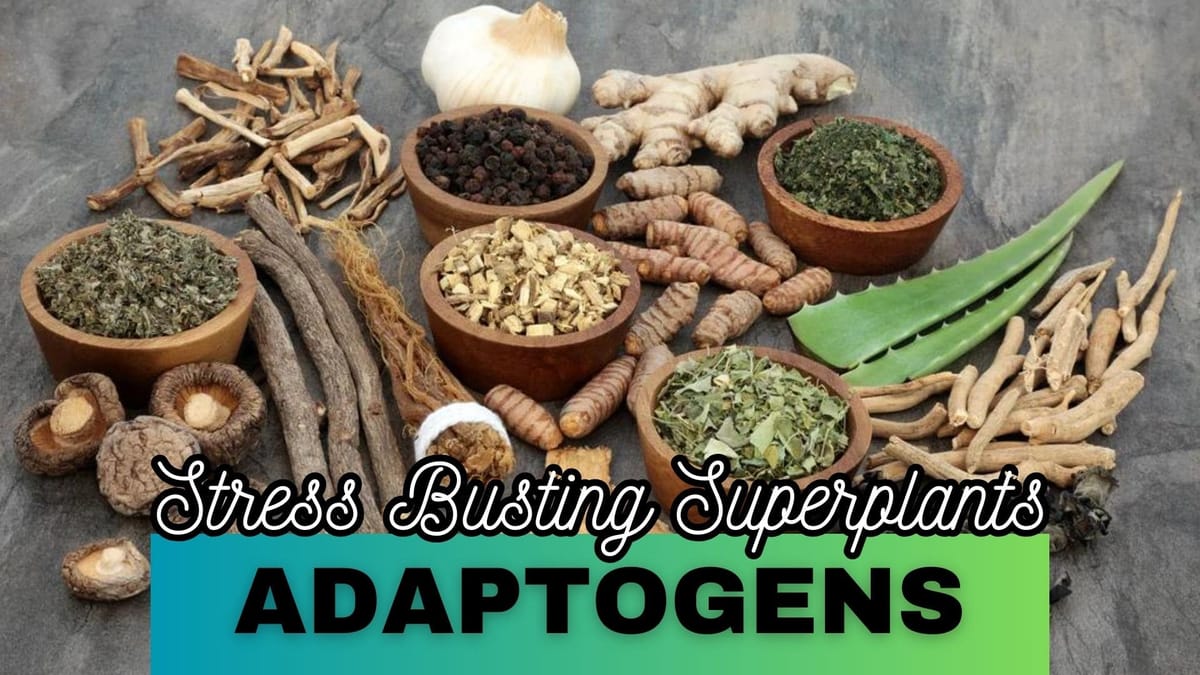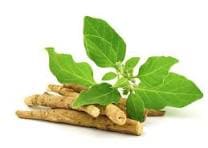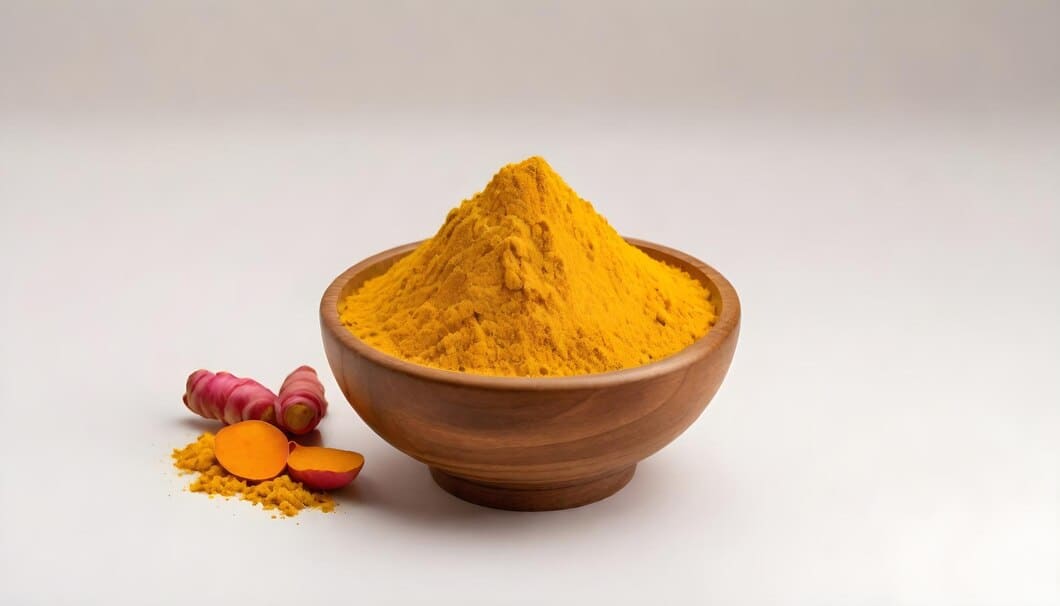Adaptogens: Nature's Stress-Busting Superplants
Adaptogens, a unique class of plants and mushrooms, offer a natural solution to help us adapt and cope with the relentless strain of daily stress.

Stress has become an inescapable part of modern life. Adaptogens, a unique class of plants and mushrooms, offer a natural solution to help us adapt and cope with the relentless strain of daily stress. They have been used for centuries in traditional medicine, and modern research is now shedding light on their remarkable ability to bolster our resilience and promote overall vitality.
Understanding Stress and Its Impact
Stress is a natural physiological response to perceived threats or challenges. When we encounter stressful situations, our body releases hormones, including cortisol and adrenaline, to prepare us for the "fight or flight" response. While this response is beneficial in short bursts, chronic stress can wreak havoc on our health, contributing to a wide range of issues, such as anxiety, depression, insomnia, digestive problems, and even heart disease. Stress and health are inextricably linked, and finding effective ways to manage stress is crucial for maintaining overall well-being.

What are Adaptogens?
Adaptogens are a unique class of plants and mushrooms, used for centuries in traditional medicine systems like Ayurveda and Traditional Chinese Medicine. These remarkable substances help the body adapt to various forms of stress, whether physical, mental, or environmental. The goal of adaptogens is to return your body to a state of balance (homeostasis). The herbal action in adaptogens increases or decreases chemical reactions within your body.
For example, if you’re stressed (elevated cortisol), an adaptogen will respond by reducing cortisol levels. If you experience chronic fatigue with low cortisol levels, an adaptogen will increase cortisol levels in your body.
Top Adaptogens for Stress Reduction
While numerous adaptogens are available, some stand out as potent allies in the battle against stress. Here are some of the best adaptogens for stress:
- Ashwagandha: Known as the "Indian ginseng," ashwagandha has been revered to promote overall vitality and resilience. It is believed to help regulate cortisol levels, reducing the negative effects of chronic stress.

- Rhodiola: Hailing from the cold, harsh regions of Siberia and Northern Europe, it has been used for centuries to enhance physical and mental endurance. It is particularly effective in combating fatigue and improving cognitive function under stressful conditions.
- Ginseng: Both Asian and American varieties of ginseng are renowned for their adaptogenic properties. These herbs are believed to help the body cope with various forms of stress - boosting energy levels and enhancing overall well-being.
- Holy Basil: Also known as "Tulsi," this revered herb from India has been used for thousands of years in Ayurvedic medicine. It is believed to possess potent anti-stress and anti-anxiety properties, making it a valuable ally in modern times.
- Reishi Mushroom: This medicinal fungus has been prized in traditional Chinese medicine for its ability to promote overall health and longevity. Reishi is believed to help the body adapt to stress by modulating the immune system and promoting a sense of calm and balance.

More Common Adaptogens and their Benefits:
- Tulsi Basil: Reduces anxiety, stress and inflammation
- Maca Root: Boosts mood and energy levels
- Cordyceps Mushroom: Reduces stress and balances hormones
- Turmeric: Helps the body balance stress hormones and reduces inflammation
- Nettle Leaf: Reduces stress and tension
- Licorice: Boosts endurance and overall energy
These adaptogens can be consumed in various forms, including capsules, teas, or tinctures, making them convenient additions to your daily routine.

Mechanisms of Action
While the exact mechanisms by which adaptogens reduce stress are still being studied, researchers have identified several potential pathways. Many adaptogens are believed to work by regulating the hypothalamic-pituitary-adrenal (HPA) axis - the body's primary stress response system. By modulating the production and release of stress hormones like cortisol, adaptogens help to prevent the negative effects of chronic stress.
Additionally, some adaptogens have been shown to possess antioxidant and anti-inflammatory properties, which can help mitigate the damaging effects of oxidative stress and inflammation caused by chronic stress. Others may work by improving cognitive function, enhancing energy levels, and promoting overall well-being.
Research and Evidence
While adaptogens are a relatively new field, a growing body of research highlights their potential benefits for stress management. Several clinical studies have demonstrated the efficacy of adaptogens like ashwagandha, rhodiola, and ginseng in reducing stress, anxiety, and fatigue, while also improving overall quality of life.
While more research is still needed, current evidence suggests that continued study of adaptogens and stress management may be rewarding for those wishing to improve their overall health and resilience.

Incorporating Adaptogens into Your Routine
Using adaptogens for stress relief can be a simple and effective addition to your wellness routine. These herbs and plants can be consumed in various forms, including capsules, tinctures, teas, and even powders that can be added to smoothies or other beverages.
When incorporating adaptogens into your routine, it's essential to start with low doses and gradually increase as needed. It's also important to consult with a healthcare professional, especially if you're taking any medications or have underlying health conditions, as some adaptogens may interact with certain drugs or have contraindications.
Potential Side Effects and Precautions
While adaptogens are generally considered safe and well-tolerated, it's important to be aware of potential side effects. Some individuals may experience mild digestive issues, headaches, or sleep disturbances when first starting to use adaptogens. These side effects are typically temporary and resolve as the body adjusts to the new supplement.
It is also important to note that adaptogens should not be used as a substitute for conventional medical treatment or as a reason to ignore underlying health conditions. If you're experiencing severe or persistent stress-related symptoms, it's essential to seek professional medical advice.
Conclusion
By incorporating adaptogens into our daily routines and adopting a proactive approach to stress management, we can unlock a path to greater vitality, mental clarity, and overall balance. Remember, the key to unlocking the full potential of these natural allies lies in consistency, mindfulness, and a willingness to prioritize our well-being.
After all, when we prioritize our mental and physical health, we pave the way for a life filled with purpose, joy, and lasting fulfilment.






